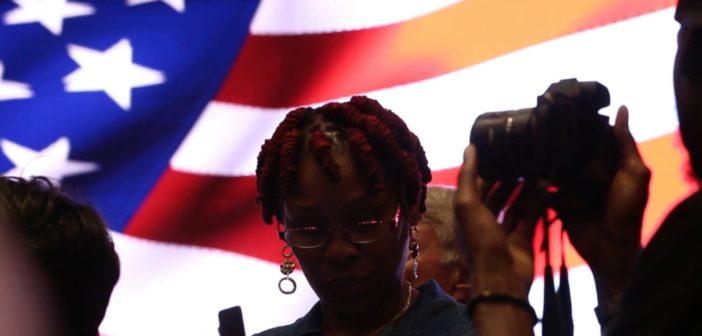Early voting has already begun for the Florida Midterm Elections. The official date to vote is Nov. 6. Florida voters will be able to decide on their ballots if they wish to allow formerly convicted felons the right to vote. Perhaps the most important of the 12 amendments on this ballot, Amendment 4 would restore voting rights for felons that have completed their sentences and were convicted of crimes other than murder or sexual offenses.
Currently, according to NPR, more than 10 percent of Florida’s adult population is prohibited from voting for life due to prior convictions, which is about 1.5 million individuals. One of every 13 African-Americans has lost their voting rights due to felony disenfranchisement laws, compared to one in every 56 non-black voters (source: ACLU). As a result of this disproportionate and harsh punishment, our elections in Florida are less fair to all demographics because they reflect the views of only certain races. Therefore, current election results are not representative of all Floridians. We are currently shutting out a significant amount of our people from our democracy. Florida is one of only four states that does this among Virginia, Iowa and Kentucky.
While the amendment should be seen as a bipartisan human rights solution, it is interesting to see the gubernatorial nominees’ stances on the issue. Democratic nominee Andrew Gillum lays out his stance, clearly, on his website that he supports in second chances for formerly convicted criminals and will work toward positive re-entry into society. It is more difficult to find Republican nominee Ron DeSantis’ stance, but he did tell the Tampa Bay Times, “… I don’t support automatic restoration of voting rights. I’m going to be very tough on crime, and I’m never going to budge on that.” He sort of dances around the issue.
The amendment does not apply to those convicted of murder or sex crimes. Therefore, a significant amount of those affected are people charged with low-level drug offenses. These non-violent criminals should be able to go through rehabilitation and have the same fair shot at a happy, healthy life as any other individual and restoring voter rights is one way to support that re-entry into normalcy. Restoring rights is not “soft on crime,” meaning it will not encourage ex-felons to commit more crimes. In fact, it has the opposite effect. Positive re-entry keeps formerly convicted felons away from lives of crime by encouraging them to move forward.
The current restoration system in place is largely ineffective. It requires felons to appeal to the governor and his cabinet to get their rights back. However, few applicants are accepted. Out of over 1.6 million disenfranchised voters in 2016, only 2,000 were approved in Tallahassee to have their voting rights restored according to the Brennan Center for Justice.
Many are getting behind this amendment under the direction of the Christian spirit of forgiveness. If forgiveness is part of your faith, that is a fair enough reason to vote for this. However, I would also urge you to consider the racial disparity as an important factor as well, because those statistics matter. Whether or not ex-felons should be forgiven by non-felons is irrelevant if you believe that in the eyes of the government, people of all races, genders and socioeconomic backgrounds should have the same rights.
The disproportionate amount of African Americans affected by felon disenfranchisement from voting is not a standalone issue. According to the US Sentencing Commission, black men got 19.1 percent longer sentences for the same federal crimes as white men between fiscal years 2012 and 2016.
Additionally, innocent black people are about 12 times more likely to be wrongfully convicted of drug crimes than innocent white people according to the National Registry of Exonerations. Black people receive harsher punishments for the same crimes that white people commit and receive slaps on the wrists for in America, and they are treated by the justice system with unfair biases. For these reasons, black people are more affected by felon voter disenfranchisement.
Restoring voter rights for felons would allow for more diverse voices to be heard. It would be a step in the right direction towards fair changes in the criminal justice system because people who have actually been through the process will have a say in how it could be better. It just makes sense that all people should have a say in our democracy.





